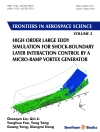The United States has long exploited Earth’s orbits to enhance security, generate wealth, and solidify its position as a world leader. America’s ambivalence toward military activities in space, however, has the potential to undermine our future security. Many in Washington possess a peculiar regard for space and warfare. Some perceive space as a place to defend and fight for America’s vital interests. Others—whose voices are frequently dominant and manifested in public rhetoric, funded defense programs, international diplomacy, and treaty commitments—look upon space as a preserve not to be despoiled by earthly strife.
After forty years of discussion, the debate over America’s role in space rages on. In light of the steady increase in international satellite activity for commercial and military purposes, American’s vacillation on this issue could begin to pose a real threat to our national security. Steven Lambakis argues that this policy dysfunction will eventually manifest itself in diminished international political leverage, the forfeiture of technological advances, and the squandering of valuable financial resources. Lambakis reviews key political, military, and business developments in space over the past four decades. Emphasizing that we should not take our unobstructed and unlimited access to space for granted, he identifies potential space threats and policy flaws and proposes steps to meet national security demands for the twenty-first century.












